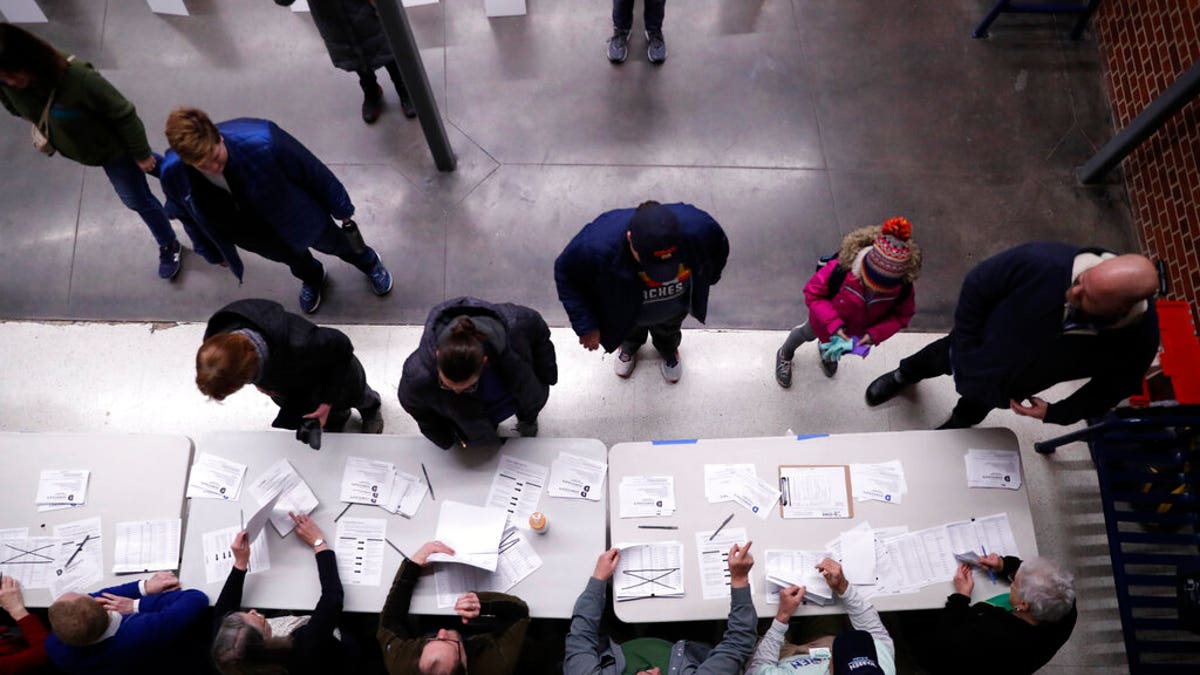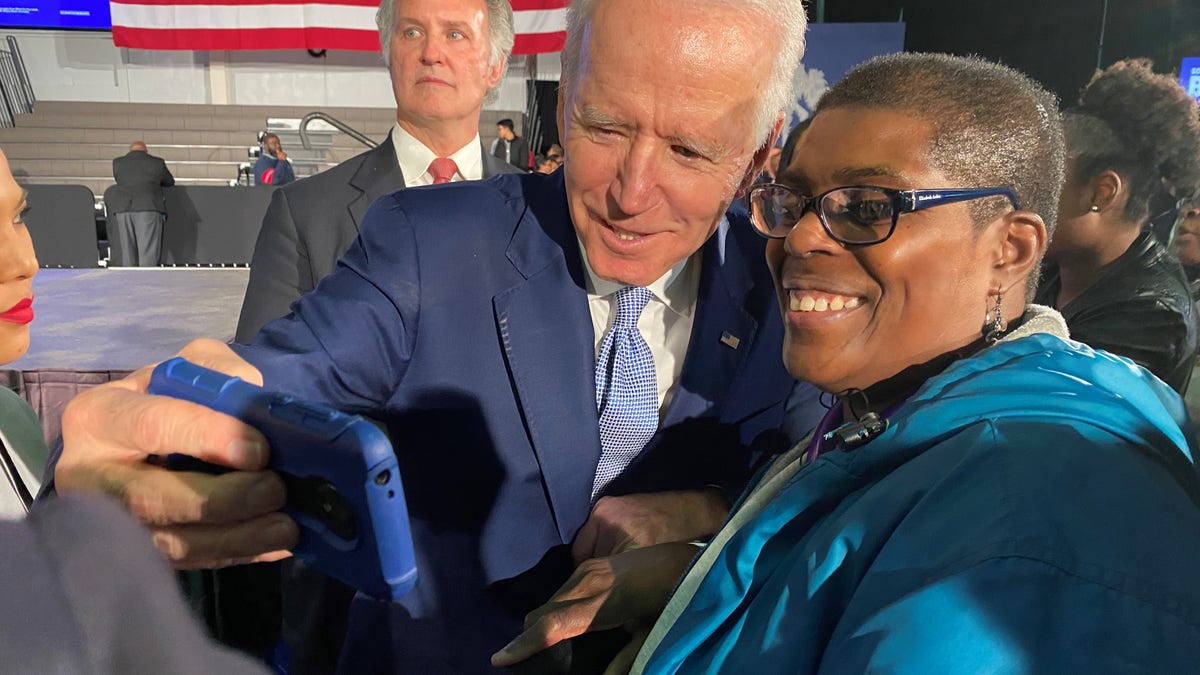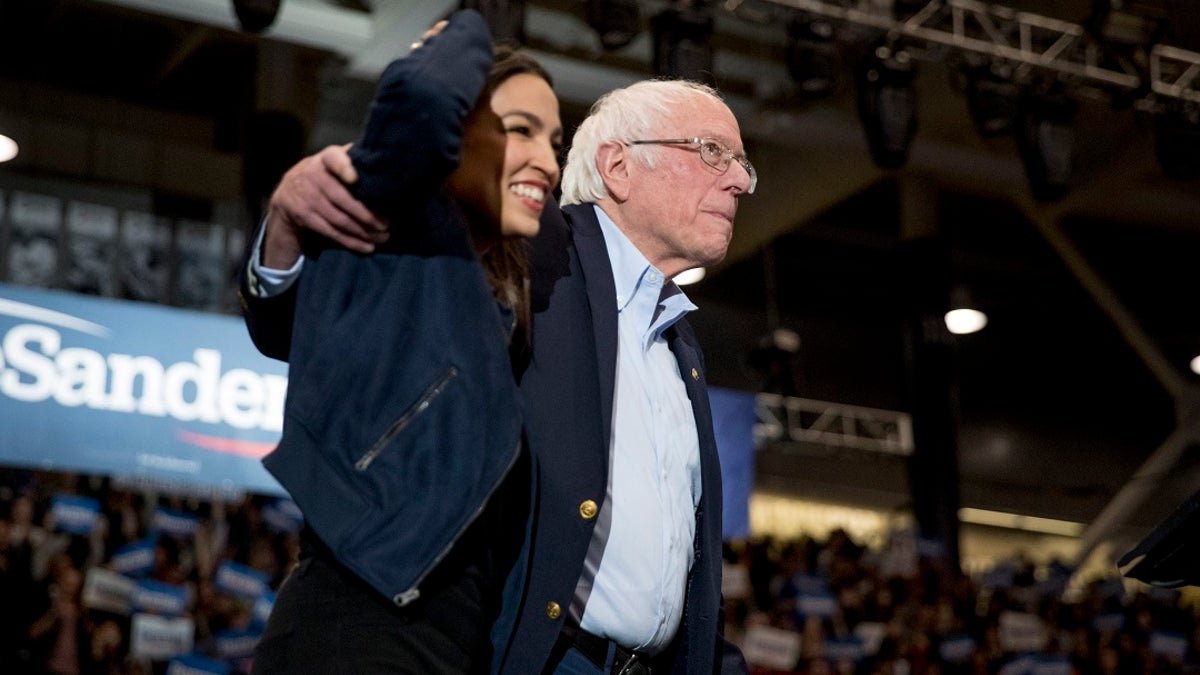Rep. Debbie Dingell shares her Big Idea on reforming presidential primary elections
Rep. Debbie Dingell, D-Mich., says Iowa and New Hampshire should no longer hold the first primary contests and other states should have a chance at the candidate's attention starting in 2024.
The Big Idea is a series that asks top lawmakers and figures to discuss their moonshot — what’s the one proposal, if politics and polls and even price tag were not an issue, they’d implement to change the country for the better?
As soon as the 2020 election is over, Rep. Debbie Dingell, D-Mich., will get to work on her longstanding political goal to reform the presidential primary process -- so that Iowa and New Hampshire no longer vote first.
That sound you hear is a record scratch resounding from Des Moines to Concord.
But while the states' treasured position at the front of the election calendar has been baked in for decades, Dingell has had designs on changing that for a while. She plans to run to represent Michigan at the Democratic National Committee with the goal of overhauling the presidential nomination system "once and for all" so that other states will have a chance in the spotlight.
"I don't think any two states should have a lock on going first," Dingell told Fox News.
MICHIGAN DEM REP. DINGELL SAYS SHE 'DOESN’T BELIEVE THE POLLS' THAT SHOW BIDEN BEATING TRUMP
Iowa has held the prize being the first caucus state since 1972, and New Hampshire has been the first-in-the-nation primary state since 1920, though the Granite State's importance in voting directly for presidential candidates didn't take hold until 1952.
Being first means these two states have garnered outsized attention while issues important to later-voting states could routinely be pushed to the backburner, Dingell said.
"Two small states -- New Hampshire and Iowa -- dominate the presidential nominating system," Dingell said. "They don't reflect the diversity of the country. They don't reflect the very diverse issues that everybody cares about. And I think that we need a system where presidential candidates are going to far more states."
One approach for reform would be to have a rotating schedule of states that would go first. Another is to hold a cluster of regional primaries on the same day. The kickoff region could rotate each cycle.
Regardless of the approach, Dingell thinks the DNC needs to agree on a strategy that's fairer to the 48 other states that for decades have taken the backseat.
Dingell, along with former Michigan Sen. Carl Levin, tried to upend the nominating process once before. In 2008, Michigan moved up its presidential primary to Jan. 15 in defiance of the DNC and Republican National Committee in an effort to gain more political clout. But Michigan got blowback for trying to jump the line, and Iowa and New Hampshire ultimately upped their contests to remain first.
Equipped with lessons from the past, Dingell thinks the effort to transform the primary calendar will now have a better shot given the vote-counting debacle at the Iowa caucuses this year and the growing concern raised by Democrats that the largely White electorate in Iowa and New Hampshire has had a disproportionate impact on determining the presidential field.
Dingell discussed her Big Idea for reforming the primary election calendar with Fox News. This interview has been edited for clarity and brevity.
Q: What is your big idea?
Dingell: We need a better nominating system in this country that reflects the diversity of our country.
And I think that many people began to understand it when we saw the broken primary season this year. I have to give initial credit to former Sen. Carl Levin, who really fought this fight for decades.
MICHIGAN DEMS MAKING PLAY TO CHALLENGE IOWA'S POLITICAL STATUS AFTER CAUCUS MESS
What happens in both the Republican and Democratic parties, two small states -- New Hampshire and Iowa -- dominate the presidential nominating system. They don't reflect the diversity of the country. They don't reflect the very diverse issues that everybody cares about. And I think that we need a system where presidential candidates are going to far more states and spending far more time.

Caucus goers check in at a caucus at Roosevelt High School, Monday, Feb. 3, 2020, in Des Moines, Iowa. (AP Photo/Andrew Harnik)
Q: You talked about diversity. Describe the Democratic Party electorate and why you think it's important for the early states to embody that diversity as well.
Dingell: It's very important to have states that do reflect that diversity, so that you've got states that have a significant Black population, Hispanic population, rich in culture. It also includes auto workers or teachers. It's diversity in farming and agriculture and manufacturing and shipping and all the other things that working men and women do across the country.
The next presidential race will begin the day after our election this year. Presidential candidates start visiting New Hampshire and Iowa. Anyone who's ever run for president can talk to you about Iowa's farming issues but they can't talk to you about manufacturing, they can't talk to you about environmental issues, they can't talk to you about the Great Lakes. The South has different issues than the coastal states. We need a process so that candidates are spending time in Midwest states, in Northwest states and in Southern states as much as they're spending in New Hampshire and Iowa.
Q: New Hampshire and Iowa take their first-in-the-nation status very seriously. One advantage is they are smaller states so the candidates can really hone their retail politics. Why is it important for Iowa and New Hampshire to be dethroned from their first in the nation statuses?
Dingell: I don't think any two states should have a lock on going first. Not only do the candidates spend time there, but the media follows them there, and it becomes a business, in and of itself. Every state's got that right to have the issues that they care about also be talked about. When you saw the roll call of states in the Democratic Party convention, you sure saw a diversity of issues and products and the kinds of things that people care about from those states.
Presidential candidates need to understand each state's issues. And that doesn't happen when two small states that do not reflect the diversity of this country are the ones that dominate the cycle.

Former Vice President Joe Biden takes a selfie with a supporter at his South Carolina victory celebration, on Feb. 29, 2020, in Columbia, S.C.
Q: 2020 was so unique in that Joe Biden became the Democratic nominee despite doing poorly in Iowa, New Hampshire and Nevada. It was really South Carolina, the fourth state, that resurrected his campaign. Do you think this 2020 cycle with Biden still being the nominee despite his performance in New Hampshire and Iowa signals to you a more urgent situation to reform this process?
Dingell: South Carolina came about as a reform. The year that Carl Levin and I pushed the process, they did acknowledge that there needed to be other states and it proves that there are other states that can be there as part of the cycle. Iowa was a disaster. It couldn't count votes. It didn't know how they were counting them. We really need to look at the caucus process as well, quite frankly.
You saw what the addition of South Carolina did to a race. It is the state that reflected more of the diversity of the country, and it gave a strong vote to Joe Biden and it changed the course of this year's nominating process. But I think that more states deserve to have that right.
Q: If all goes according to your vision what would the 2024 cycle look like and who would be the first-in-the-nation state at that time?
Dingell: Well, we have to have that discussion. I'm not looking for Michigan to be the state that goes first, I'm looking for a system or process that lets every state have that opportunity. So is it rotating? Is it is a mixture of small and large states? We need to all get in the room, those of us who really understand the process. We have to make sure there's not another fiasco like there was in Iowa.
MITT ROMNEY'S BIG IDEA: PREVENT SOCIAL SECURITY AND MEDICARE FROM GOING BANKRUPT
Q: So when you and Carl Levin cause all kinds of mischief in 2008 by moving Michigan's primary --
Dingell: I'm going to quote John Lewis, 'it was good trouble.'
Q: You definitely caused drama nationwide. Iowa had to move up the caucus. New Hampshire leapfrogged everyone as well. But you bucked the party calendar because you thought it was important then to take a stand. Twelve years later, are the driving issues still the same?
Dingell: The issues are still the same: Two small states dominate the presidential nominating system, and those two states do not reflect the diversity of this country at all. Now South Carolina and Nevada have been added. But Iowa and New Hampshire are the two states that everybody goes to.
SEN. TAMMY DUCKWORTH'S BIG IDEA: A MARSHALL PLAN FOR COAL COUNTRY
Q: What would need to happen within the Democratic Party to get this done in time for the 2024 election?
Dingell: After the presidential election you'll get your new DNC. We are likely to have a new DNC chair. I don't know what Tom Perez's plans are. The rules committee will get appointed and who's on that rules committee is really going to matter. It's going to take state delegations like ours in Michigan. I've already spoken to many people in the Michigan delegation that we need to be strong. You have to have a backbone. New Hampshire and Iowa have backbones. Well so do we.
Q: Looking back, do you think any of the outcomes of past election cycles would have been different if Iowa and New Hampshire hadn't been these kickoff states?
Dingell: You can second guess all of this. I suspect that if there had been other states involved other candidates may have stayed stronger for a while. Running for president is very complicated. You have to raise money and to stay in you've got to do well in those first states. So, if you don't, your money runs out.
I'm strongly supporting our ticket this year. I know our system is broken, but I think we have a great candidate, but I'm going to really work to make sure that everybody feels that they've got an equal opportunity in the next nominating system. I need Republicans to be there with us and we'll be working that as well.
ROBERT JOHNSON'S BIG IDEA: $14 TRILLION IN SLAVERY REPARATIONS TO AFRICAN-AMERICANS
Q: You've forged relationships over the years with Republicans. Do you hope that the Republican National Committee takes the same approach as the DNC and ousts Iowa and New Hampshire in 2024?
Dingell: I'm going to work for that.
I have friends in the Republican Party who feel the same. They are Republicans in other states that feel like their issues don't get the attention either.
There are states that go without a visit ever from a candidate. That's not right. That's just simply not right. Every state deserves to have a presidential campaign pay attention to them.
SEN. RICK SCOTT'S BIG IDEA: IMPOSE CONGRESSIONAL TERM LIMITS
Q: You are a Michigander. You'd like obviously like to see Michigan go first.
Dingell: No. If I'm going to do this and really bring about change, I have to be pure. And pure isn't Michigan going first. Pure is a system that gives every state the opportunity to have that kind of attention and Michigan may actually get hurt by this because I may say 'no,' Michigan shouldn't be part of this because we're going to go win this fight.
I want to get in the room and be nitty-gritty. I'm not going to design this without other people.

Democratic presidential candidate Sen. Bernie Sanders, I-Vt., accompanied by Rep. Alexandria Oa casio-Cortez, D-N.Y., left, takes the stage at campaign stop at the Whittemore Center Arena at the University of New Hampshire, Monday, Feb. 10, 2020, in Durham, N.H. (AP Photo/Andrew Harnik)
Q: When you suggest regional primaries as a solution, what do you mean by that?
Dingell: Travel can be expensive. So you'd have a Midwest, a Southern, a Northwest and Northeast primary. Something to that effect so candidates would be campaigning within that region, which would reduce costs of travel, and allow them to go to multiple events in the same region.
REP. TIM RYAN'S BIG IDEA: GIVING AMERICANS A MENTAL TIMEOUT
Q: In a regional primary system. would one state still kick off the election season? Or multiple states voting that same first primary day?
Dingell: It could be multiple primaries on the same day. You would set up a calendar.
Q: What would the next primary season look like in 2024 if you were successful?
Dingell: If we're doing it with Republicans, we will have a rotating presidential nominating [system]. We will have the presidential nominating system where candidates are visiting far more states early and often than Iowa and New Hampshire. And candidates are talking about all kinds of issues that matter to working men and women across the country. And we will see that reflected in a public policy agenda on Capitol Hill.







